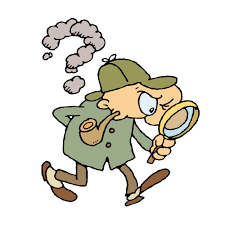

I was watching one of those crime investigation shows recently where the police called in a psychologist or psychiatrist to do a psycho analysis or profiling of a serial killer so they would know how his mind worked, what drove him to kill and how to predict his next move or set him up to make a mistake so they could catch him. It was interesting mostly because I was doing some profiling of my own. I of course was not profiling the strange and disturbing mind of a serial killer, I was profiling the deep and complex characteristics of different oils and their scents.
The first lesson in my perfumery course is "How to smell" Sounds funny since the sense of smell like other senses is supposed to be automatic; you take a whiff of something , lets say cooking gas, you say hey, I can smell gas! Ironic as it is that natural gas, bottled (in cylinders) as Liquefied petroleum gas(LPG) itself has no smell but what you smell is the hydrogen sulphide mixed with the natural gas by the manufacturer, to give that pungent smell which helps you detect a gas leak.
I am not an expert in organic chemistry or everyday chemistry for that matter but I do know so many molecules make up any particular scent and each scent is associated with so many other things in life and even sometimes trigger emotions, memories, fantasies in different people. Hence the art of smelling is not only an essential first step in the art of perfumery, but a continuous one. " Noses aren't made in a day"
Here is How I profile Scents:
 What you need
What you need
1. Smelling strip/ blotter/ unscented tissue or paper towel may work
2. Essential oil or fragrance oil
3. A nice, clean airy space
4. A relaxed mind, shoulders and head
4. Your nose of course
5. A pen and paper or your tablet
6. some adjectives, nouns or other such relevant words in your vocabulary
How to do it/ The Smelling
Breathe in and out, relax enjoy a comfortable position in your nice, clean airy space. Don't fall asleep though or you miss all the fun.
Get you smelling strip out and put a few drops of your essential oil, fragrance oil or perfume on it. Write the name of the particular oil you're smelling on the smelling strip.
Bend the smelling strip such that you fingers don't come in contact with the droplet on it and the smelling strip itself doesn't touch your nose, keep it 3 to 4 inches away (safety is key) Don't get it on your skin to avoid irritation. Don't smell more than five different oils in one sitting so you don't get a sensory overload or olfactory fatigue (Yes, that's a thing) or become ill ( yes, that happens)
Don't inhale deeply, instead, take a short light whiff and move the smelling strip away from your nose. Allow your mind to do all the work processing the information. You can take another whiff to verify the information your mind is providing and write them down as they come. Don't second guess your mind, just let it all flow.
If necessary, puff some warm air from your nostril onto the strip to warm up and release other scents you might not have noticed, you can inhale slightly deeper than the first two or three times and make your notes again, The air puffing might be necessary for blends of different essential or fragrance oils.
Take a break, smell again and write again. You can do this even after twenty four hours to help your mind soak in all the information about any particular oil and give you all that information next time you smell that oil. Some oils last much longer than twenty four hours so you can smell them after that until they are faint or no longer there, This will also help you know the tenacity of the different oils.
Questions To Ask Yourself When Smelling/ The profiling
1. What am I smelling
2. what colour is it
3. How strong is it
4. How does it make me feel or how does it come off to me; happy, sad, crazy, quiet, warm, angry, romantic, glamorous, energetic, childish, ethereal, sumptuous, voluptuous and other adjectives or words in your vocabulary that are applicable
5. What, where and who does it remind me of
6. what does it smell like; fruity, herbal, woody, flowery, aromatic, spicy, earthy,
I have done this a couple of times and it is so much fun just getting to know the different scents. It also helps me decide which oil to combine with the other to make a romantic perfume and also determine how long i would want the perfume to last.
I get my husband to smell with me sometimes, he can be very helpful when his vocabulary is not limited to soapy, lemony and yucky. He sometimes helps me put a word to what I'm trying to say about a scent. A limitation in adjectives and other relative words might get in the way at first but as we go along, these will come more fluently. A nose becomes a master perfumer because he smells and smells and smells and his mind expands and creates connections that most people can't.
One last thing, you don't have to wait until you have all the essential oils in the world before going on a smelling spree! I smell the spices in my kitchen and profile them, I smell fruits and vegetables at the farmer's market, freshly cut grass at someone's lawn(because i don't have a lawn), a bottle of perfume given to me as a gift or the one the stranger beside me is wearing. I smell my husband's skin and his dark curly hair and my friend's newly born baby. It's not creepy, I promise! LOL!